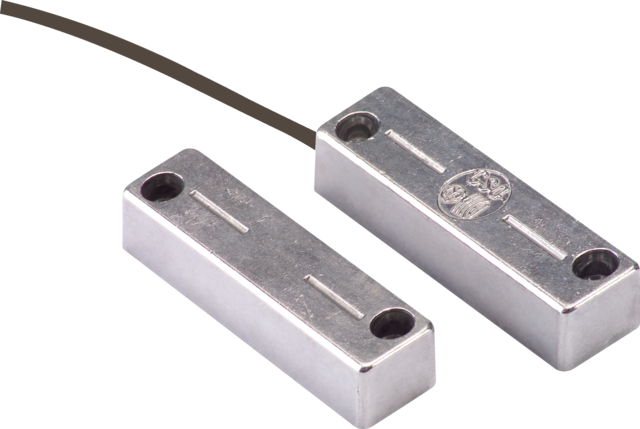MK4200
The robust aluminium opening detector for steel doors is a magnetic contact for protecting large (garage) doors. Unauthorised opening is detected and reported to the alarm panel. This opening detector is ideal for fitting to steel and metal doors. Its special construction enables its use on these materials. The detector consists of a magnetic contact (reed) and a magnet. These are fitted parallel to each other. The electric circuit of this NC opening detector is normally closed (NC). If the distance between reed and magnet increases, the circuit is broken and an alarm reported. Its extremely robust aluminium housing protects it from damage even when driven over.
For safe and proper operation, this device must be installed and regularly maintained by a professional trained by us. Arrange regular maintenance appointments with your installer to ensure trouble-free operation in the long term with the latest security updates and new functions.



